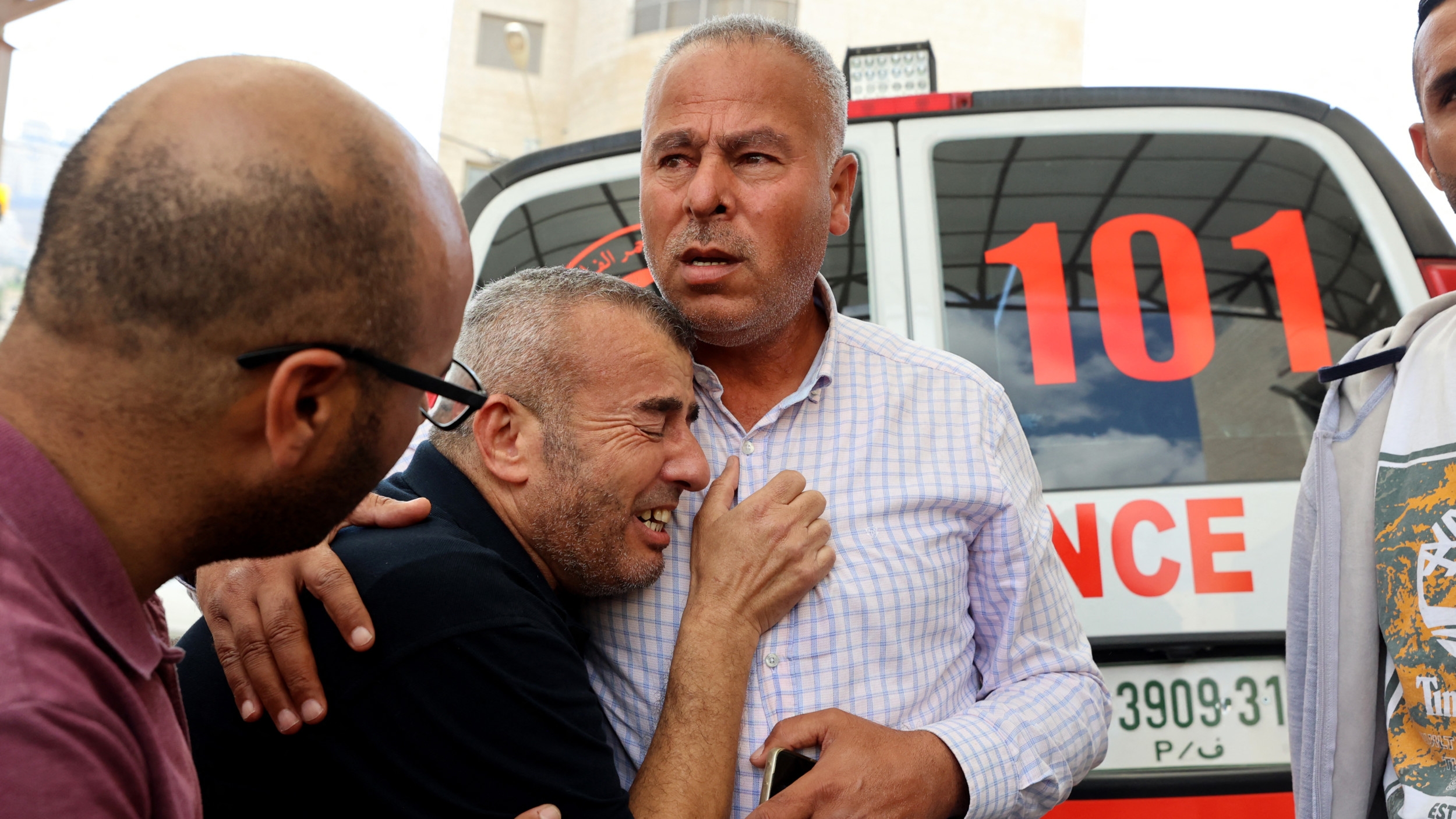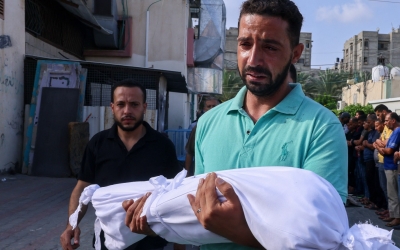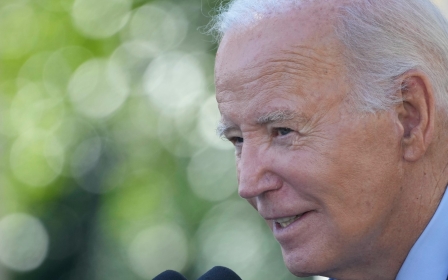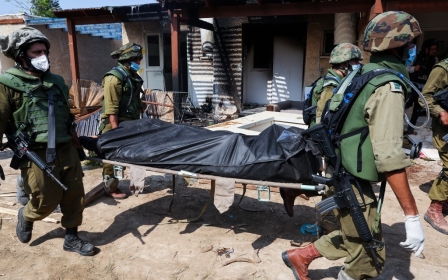Israel-Palestine war: Father and son killed in hail of bullets as settlers open fire at funeral

A Palestinian father and son were killed in a hail of bullets on Wednesday when Israeli settlers opened fire on a funeral procession in the occupied West Bank.
Videos of the incident appeared to show a car of settlers swerving into the path of the funeral procession near the town of Qusra before stopping and spraying the mourners with live ammunition.
Less than 24 hours earlier, four Palestinians were killed by Israeli settlers in the same town. The killings come amid heightened tensions following Israel's declaration of war with the besieged Gaza Strip.
Palestinian fighters launched a multi-pronged assault on southern Israel on Saturday, killing more than 1,200 people and taking at least 100 Israelis as hostages.
According to Mohammed Deif, the leader of Hamas's military wing, the operation was launched in response to an increase in settler attacks in the occupied West Bank and repeated incursions at Al-Aqsa Mosque.
New MEE newsletter: Jerusalem Dispatch
Sign up to get the latest insights and analysis on Israel-Palestine, alongside Turkey Unpacked and other MEE newsletters
An activist in Qusra told Middle East Eye that the victims of Wednesday's attack were Ibrahim Wadi, 63, and his son Ahmed Wadi, 25.
According to Muhammad Judeh, the activist, Wadi and his son were in their vehicle when the settlers opened fire. After sustaining injuries in the hail of bullets, the duo tried to escape but were run over by the settlers' vehicle.
"It was a horrific scene. None of the villagers were close enough to help or protect them," Judeh said.
"After that, the speakers of the mosques in the town called [on people] to go to the site of the attack, and violent confrontations broke out. We weren’t even able to complete the funeral of the bodies of the four martyrs," he added.
Later, ambulances carrying the four men were forced to return the bodies to a local hospital, along with the bodies of the father and his son.
Follow Middle East Eye's live coverage for the latest on the Israel-Palestine war
According to the Israeli human rights group, B'Tselem, Israeli settlers have been attacking Palestinian residents in several areas of the West Bank since Israel launched its offensive on Gaza.
Earlier on Thursday, a group of settlers attacked Palestinian homes near the village of Qalqilya in the West Bank and kidnapped one resident before handing over the beaten man to the Israeli army.
In Wadi al-Siq, an area east of Ramallah, families were forced to flee their homes after a series of attacks, Fares Kaabneh, a resident of the area, told MEE.
"Entire families were displaced long distances on foot and the settlers prevented them from taking their belongings by shooting at them, while the settlers confiscated the belongings of the homes. They seized several vehicles and agricultural tractors belonging to the people," he said.
Israeli settlers also gave residents of the Maghayer al-Deir community 24 hours to evacuate, Kaabneh said.
Settler violence against Palestinians has grown at an alarming rate in recent years, according to UN human rights experts.
Between 2010 and 2019, the United Nations Office for the Coordination of Humanitarian Affairs recorded at least 2,955 settler attacks, in which at least 22 Palestinians were killed, and at least 1,258 others were injured.
Middle East Eye delivers independent and unrivalled coverage and analysis of the Middle East, North Africa and beyond. To learn more about republishing this content and the associated fees, please fill out this form. More about MEE can be found here.





